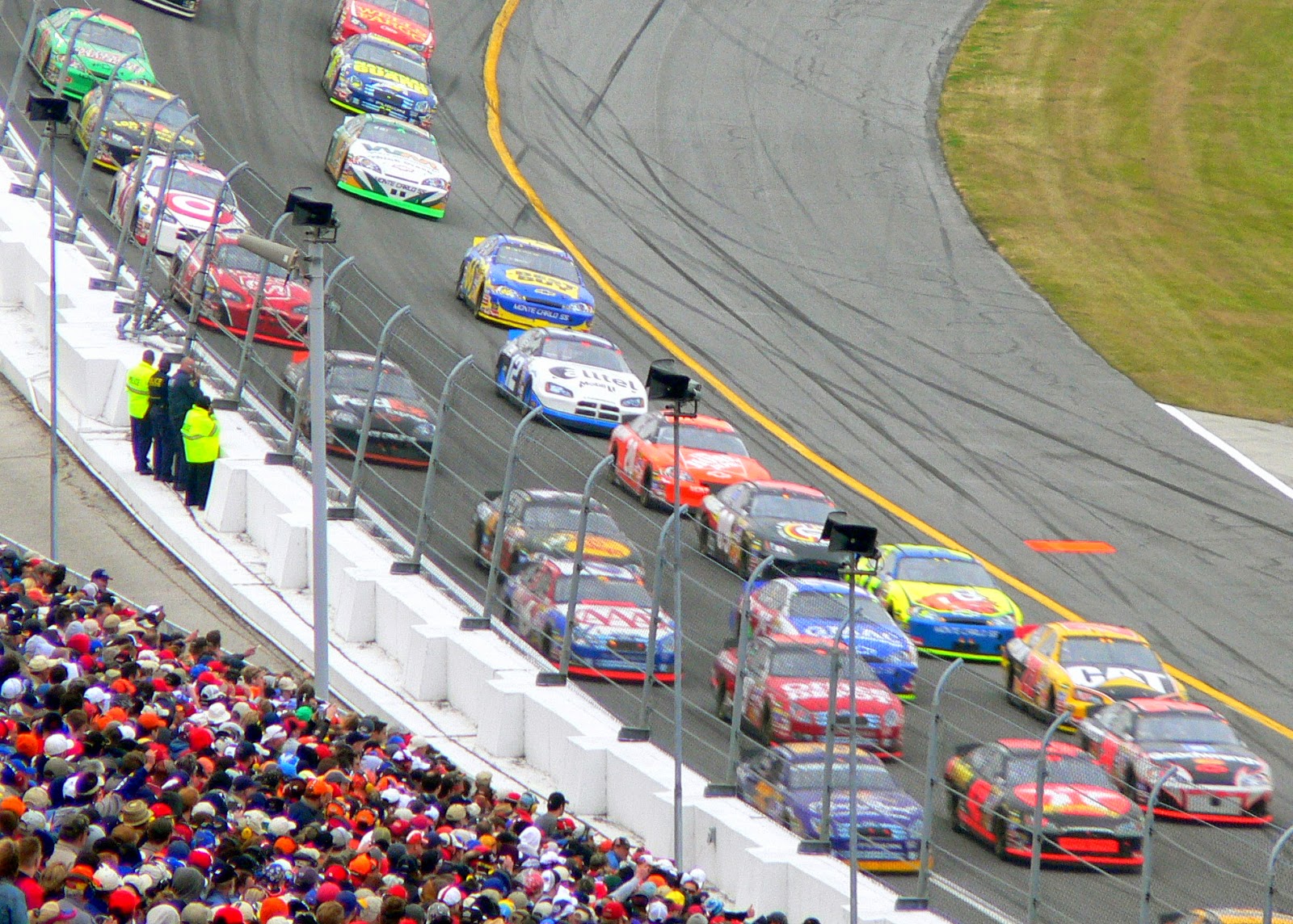Unions, collaboration, and NASCAR's millionaires
If you know what a green-white checker finish is, you'll like this post. If you don't, you'll learn something about how businesses view unions in an era when unions are in decline.
Last week, the top teams in NASCAR racing -- including those whose drivers include such marquee names as Dale Earnhardt Jr., Jimmie Johnson, Tony Stewart, Kevin Harvick, and Ryan Newman -- aligned to form a "collaborative business organization." Whatever that means.
The Race Team Alliance (RTA) may not be a union. Their stated mission is to explore areas of common interest and to work collaboratively on initiatives to help preserve, promote, and grow the sport of stock car racing. Millionaire drivers are abundant in NASCAR, so traditional labor issues might come down to what pit crew and garage teams are paid. That sounds noble.
But, remember, NASCAR's a family-owned enterprise, not a franchise-managing league like those in football and basketball. The France family didn't invent the sport, but they've exerted total control since the era of racing stock cars on the sands of Daytona Beach. NASCAR has long told teams and drivers what to do and where they'll do it, or their cars never see the race track.
RTA has the potential to alter that relationship. And NASCAR has to evolve. NASCAR's playoff model, the Chase for the Cup, hasn't been the success they'd hoped, despite years of tinkering. Top drivers (Earnhardt, Jeff Gordon, and others) have missed the season-ending race sequence, causing legions of fans to tune out. Track attendance has decreased. In the name of safety and controlling costs, they've homogenized the race cars so as to minimize brand loyalty. And when Johnson -- a legitimate champion -- takes home the top prize six times in the last seven years, it's frankly time to shake up the sport.
To NASCAR's credit, its president, Mike Helton, issued a statement that promises to "listen to a lot of stakeholders." It never mentions collaboration. That's hardly a promise to work with RTA, because Helton's statement follows a long-time PR tactic: avoid legitimizing the opponent's brand by not mentioning them, per se.
Race enthusiasts and racing sponsors know from experience that the RTA and NASCAR must cooperate, lest the sport stumble badly. In the 1970s, a few unhappy race teams split from the U.S. Auto Club, the sanctioning body that ran the Indianapolis 500 and other open-wheel races. The USAC-Indy Racing League debacle lasted for years, and sundered fan loyalty. Indy never fully recovered.
Want proof? You've probably heard of Dale Earnhardt or Jimmie Johnson. Can you name the winner of this year's Indy 500?
I was one fan who never returned. I enjoy NASCAR racing, but any prolonged dispute between RTA and NASCAR will weaken the enthusiasm of fans like me.
Last week, the top teams in NASCAR racing -- including those whose drivers include such marquee names as Dale Earnhardt Jr., Jimmie Johnson, Tony Stewart, Kevin Harvick, and Ryan Newman -- aligned to form a "collaborative business organization." Whatever that means.
 |
| Daytona 500, 2006 (c) David Kassnoff |
The Race Team Alliance (RTA) may not be a union. Their stated mission is to explore areas of common interest and to work collaboratively on initiatives to help preserve, promote, and grow the sport of stock car racing. Millionaire drivers are abundant in NASCAR, so traditional labor issues might come down to what pit crew and garage teams are paid. That sounds noble.
But, remember, NASCAR's a family-owned enterprise, not a franchise-managing league like those in football and basketball. The France family didn't invent the sport, but they've exerted total control since the era of racing stock cars on the sands of Daytona Beach. NASCAR has long told teams and drivers what to do and where they'll do it, or their cars never see the race track.
RTA has the potential to alter that relationship. And NASCAR has to evolve. NASCAR's playoff model, the Chase for the Cup, hasn't been the success they'd hoped, despite years of tinkering. Top drivers (Earnhardt, Jeff Gordon, and others) have missed the season-ending race sequence, causing legions of fans to tune out. Track attendance has decreased. In the name of safety and controlling costs, they've homogenized the race cars so as to minimize brand loyalty. And when Johnson -- a legitimate champion -- takes home the top prize six times in the last seven years, it's frankly time to shake up the sport.
To NASCAR's credit, its president, Mike Helton, issued a statement that promises to "listen to a lot of stakeholders." It never mentions collaboration. That's hardly a promise to work with RTA, because Helton's statement follows a long-time PR tactic: avoid legitimizing the opponent's brand by not mentioning them, per se.
Race enthusiasts and racing sponsors know from experience that the RTA and NASCAR must cooperate, lest the sport stumble badly. In the 1970s, a few unhappy race teams split from the U.S. Auto Club, the sanctioning body that ran the Indianapolis 500 and other open-wheel races. The USAC-Indy Racing League debacle lasted for years, and sundered fan loyalty. Indy never fully recovered.
Want proof? You've probably heard of Dale Earnhardt or Jimmie Johnson. Can you name the winner of this year's Indy 500?
I was one fan who never returned. I enjoy NASCAR racing, but any prolonged dispute between RTA and NASCAR will weaken the enthusiasm of fans like me.